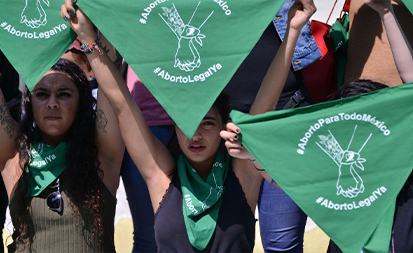Top justice says, Mexican abortion ban wrongly punished poor women
The Mexican Supreme Court's unanimous decision to decriminalize abortion on Tuesday will mainly help the poor women, who have in the past borne the brunt of punishments for the crime, the president of the tribunal

The Mexican Supreme Court’s unanimous decision to decriminalize abortion on Tuesday will mainly help the poor women, who have in the past borne the brunt of punishments for the crime, the president of the tribunal said on Wednesday.
Supreme Court President, Arturo Zaldivar, said denying women the right had been an immense social injustice, speaking after the Supreme Court ruled it was no longer possible to prosecute any woman who has an abortion without violating the constitution.
“Rich girls, and I’ve said this, and it upsets many that I say it, have always had abortions and never gone to prison. This is a crime which to a great extent punishes poverty,” Zaldivar told reporters at a news conference in Mexico City.
Only four out of Mexico’s 32 regional governments had decriminalized abortion before the court’s ruling, and dozens of women have been imprisoned over the last decade for having had abortions, according to leading advocacy groups.
Zaldivar the close ally of leftist President Andres Manuel Lopez Obrador, has put helping the poor at the center of his administration. However, Lopez Obrador has shied away from taking sides on the contentious matter of abortion.
Earlier, Lopez Obrador stated that the court’s decision should be respected, while stating that, he felt he should not give his opinion, because there are differing points of view on abortion in Mexico, specially being a predominantly Roman Catholic country.
The court’s ruling was hailed as a major victory for advocates of women’s health and human rights, and came just as parts of the United States enact tougher laws against the practice, particularly in Texas on Mexico’s northern border.
The Mexican Episcopal Conference said in a statement that the ruling “unfailingly implies discrimination against the human being by reason of its gestation stage, positioning the unborn child as if it were a legal asset that can be disposed of…”





